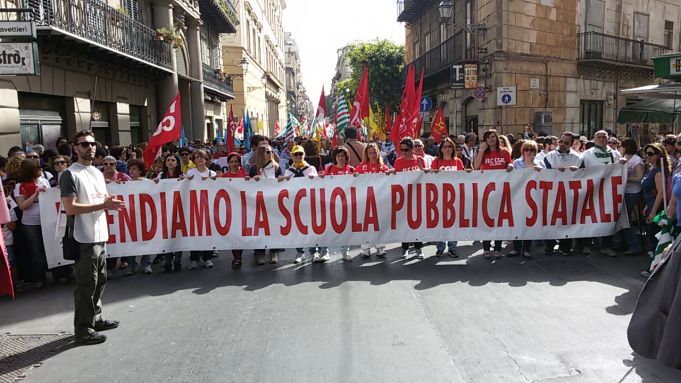Renzi's Good School programme gets the go-ahead.
“More teachers, more merit and more autonomy”, is how Italy's prime minister, Matteo Renzi, greeted the reforms to the country's educational system, which were passed by parliament on 9 July.
The Renzi reforms called “La Buona Scuola” were voted through the chamber of deputies, after previously passing through the senate, by 227 to 173 with four abstentions, a smaller majority than the government might have expected.
The wide-ranging measures provide for 100,000 teachers to be given permanent contracts in the 2015-2016 academic year (although it is estimated that only about 50,000 will in fact be taken on in the first year); for school principals to be given greater choice over the teachers they employ and more power over the school curriculum; for teachers to be awarded with financial incentives according to merit every three years and for on-going professional training throughout their careers.
The reforms will also provide tax deductions for parents who donate money to schools and for those who send their children to private schools, still the minority in Italy.
For its part the government has pledged €4 billion capital investment in school buildings.
The Renzi school reforms are the first major renewal of Italy's state school system for over half a century and will give unprecedented power to each school. Until now state education, which is the norm in Italy, has been controlled at the national level and administered by the provinces. Now it will be governed by the individual school units under the administration of the regions.
Although the curriculum and exams will still be set nationally, secondary school principals will have much greater flexibility to promote such subjects as art, music, languages and informatics. They will also be able to select the teachers they want from a regional role of those with the necessary state qualifications and professional exams.
One of the main criticisms of the measure is that it will give too much autonomy to individual school principals, although in reality each school will be governed by an existing body made up of teachers, administrative staff, parents and students. The difference is that these school committees will now have considerably more power.
The reforms have been greeted by criticism from the political left and the right, as well as by teachers and students. Much of the criticism has come from within Renzi's own Partito Democratico (PD). His opponents see the measure as a sell-out to creeping privatisation within the state educational system. It is also believed that the new power invested in individual units will lead to larger disparities between schools in socially and economically different areas of the country.
The beginning of the school academic year in September is always a time of student protests, sit-ins and the occupation of school buildings. This year the autumn may be more turbulent than usual.





















